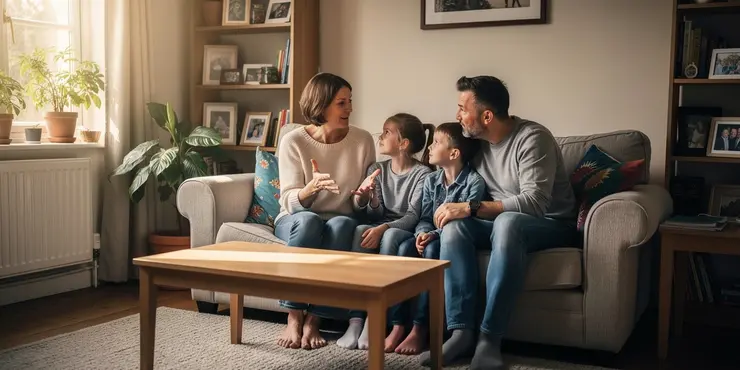
Find Help
More Items From Ergsy search
-
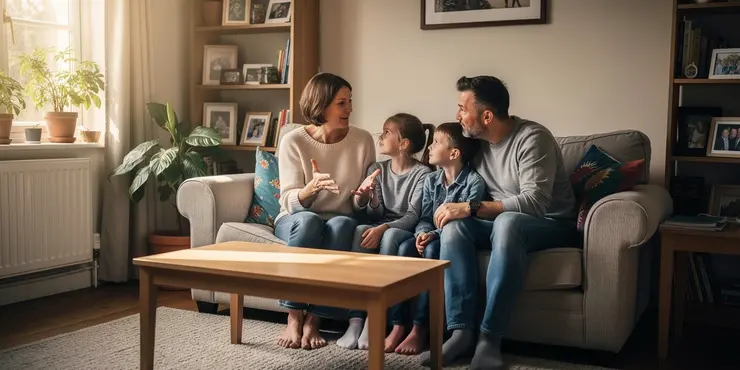
Mental Health Resources for Families
Relevance: 100%
-
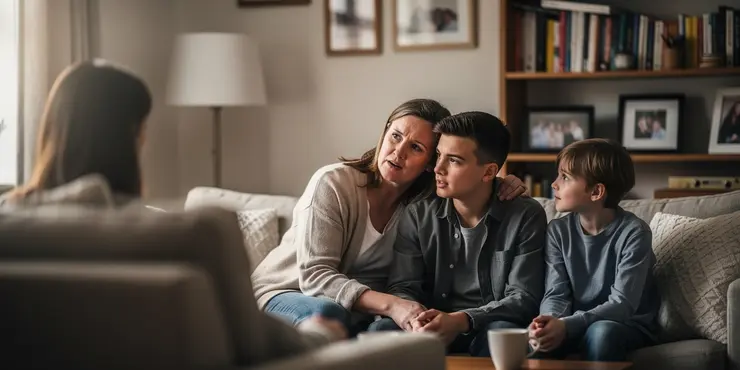
Advancements in Mental Health Resources for Families
Relevance: 96%
-
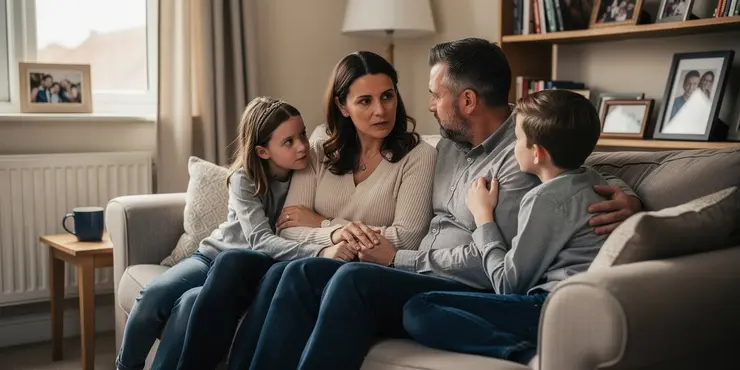
Mental Health Support Resources for Families
Relevance: 96%
-
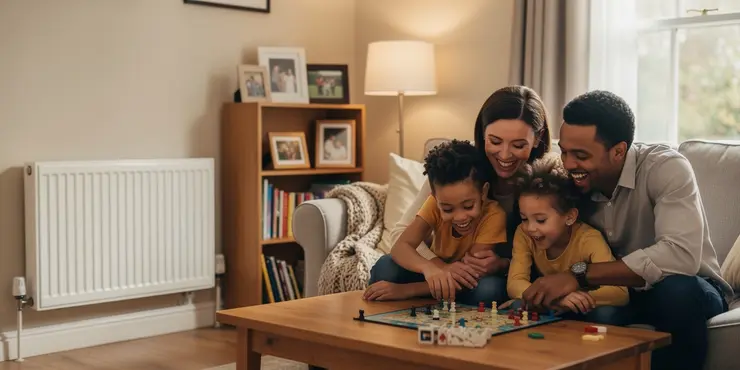
Mental Health Support for Families: Resources and Strategies
Relevance: 91%
-
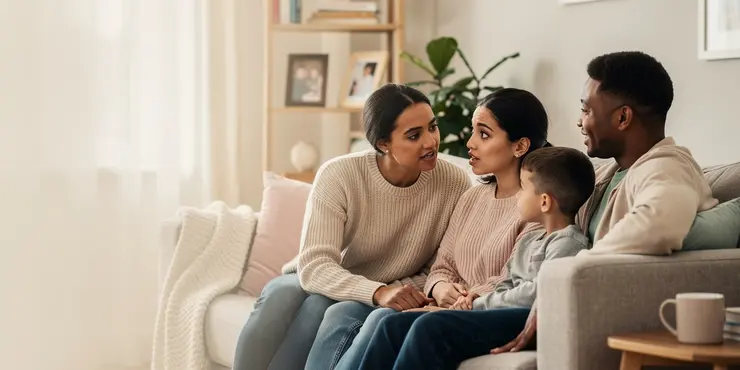
Mental Health Support for Families: Resources and Helplines
Relevance: 91%
-
Mental Health Support for Families: Resources and Guidance
Relevance: 90%
-
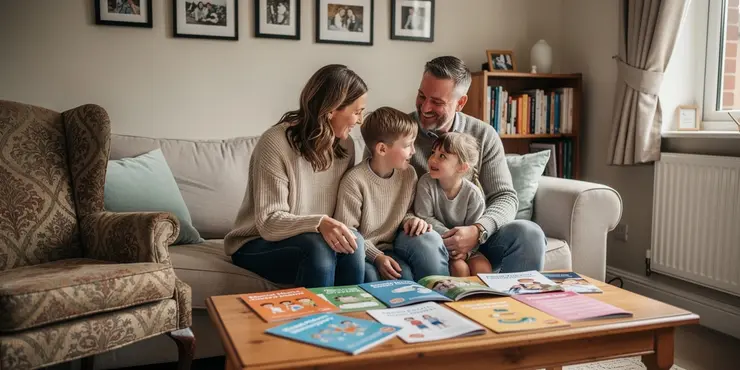
Mental Health Support for Families - Latest Resources and Guidance
Relevance: 86%
-
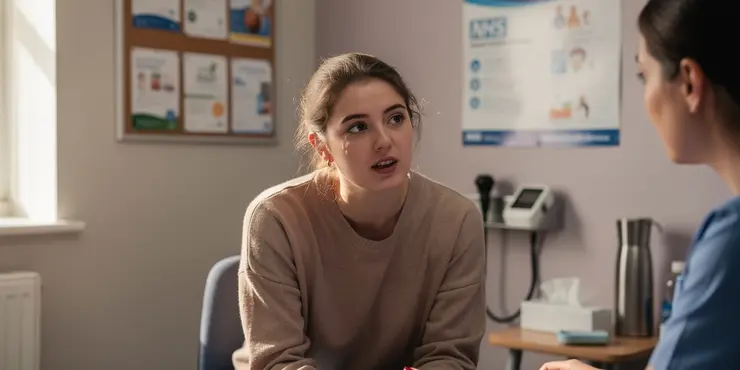
Mental Health: Laura's Story | NHS
Relevance: 69%
-
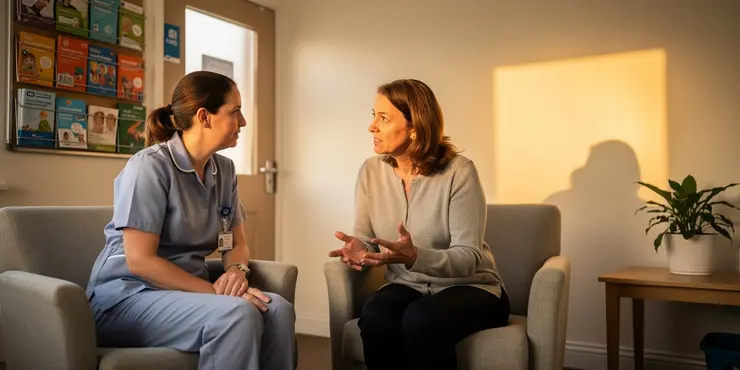
Mental Health Support Resources in the UK
Relevance: 69%
-
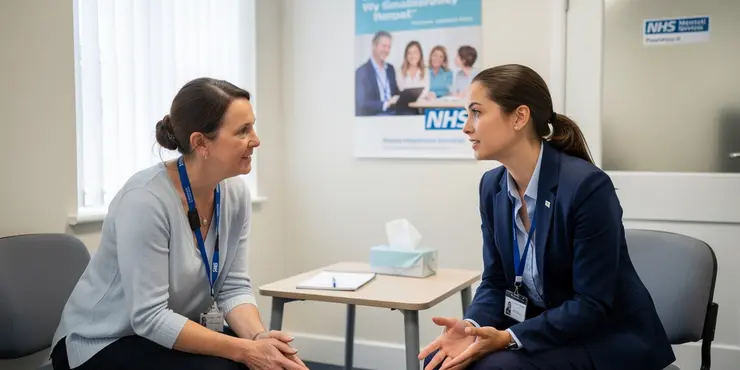
Mental Health Support Services in the UK
Relevance: 69%
-
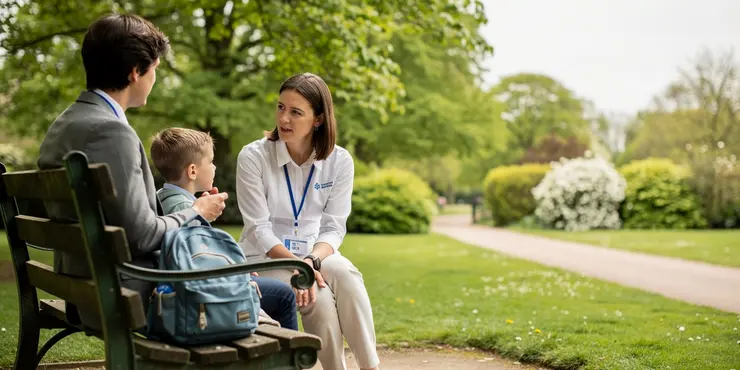
Understanding Mental Health in Children
Relevance: 69%
-
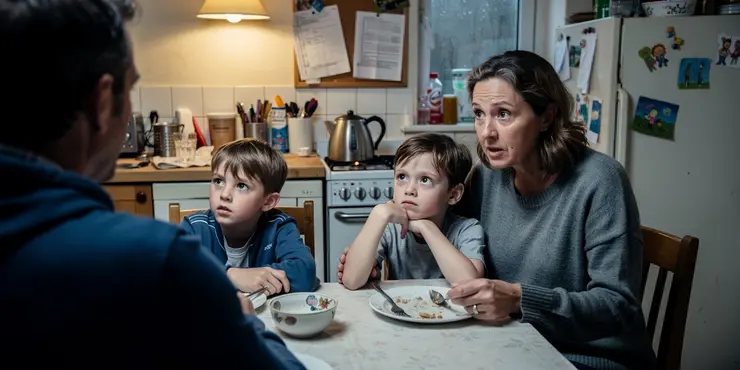
Impact of Rising Living Costs on Family Health
Relevance: 67%
-

Accessing Mental Health Support Resources in the UK
Relevance: 66%
-
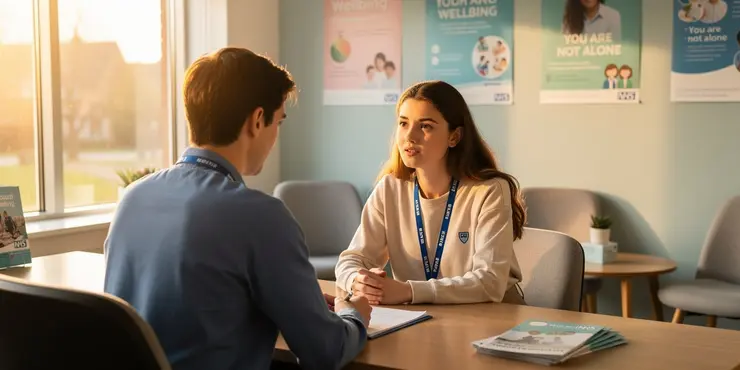
Current Challenges in Youth Mental Health Services
Relevance: 65%
-
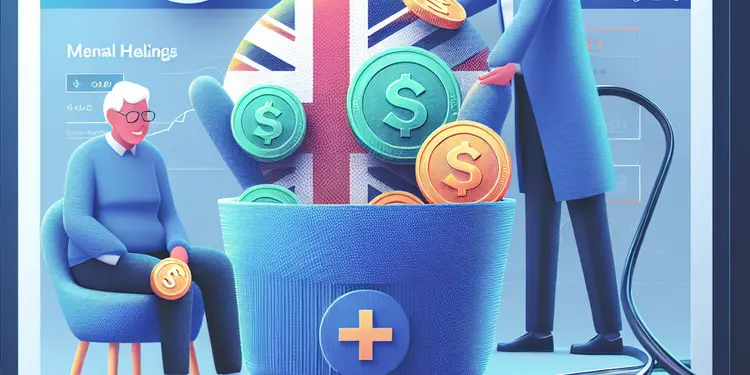
What mental health resources are available for seniors?
Relevance: 64%
-
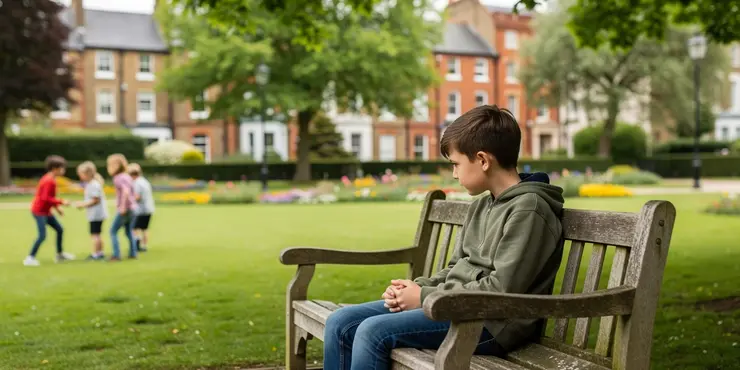
Navigating Mental Health Services for Children and Adolescents
Relevance: 63%
-
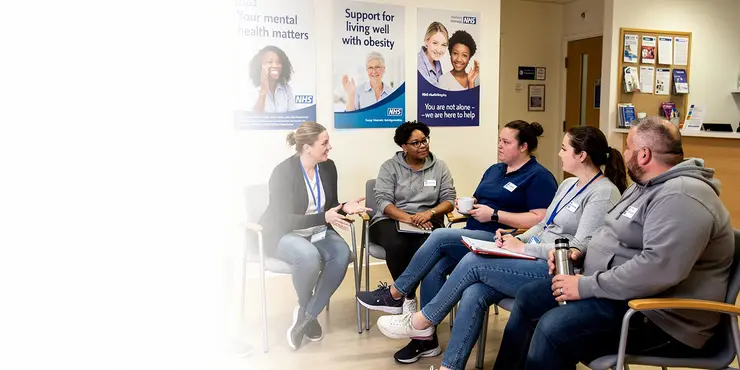
What is the impact of obesity on mental health?
Relevance: 63%
-
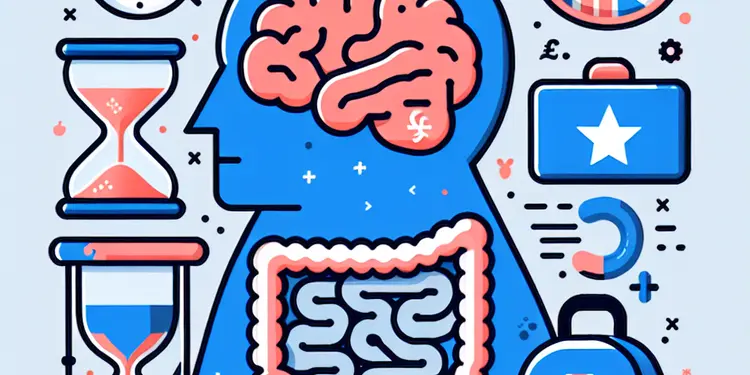
Can gut health affect mental health as one ages?
Relevance: 62%
-
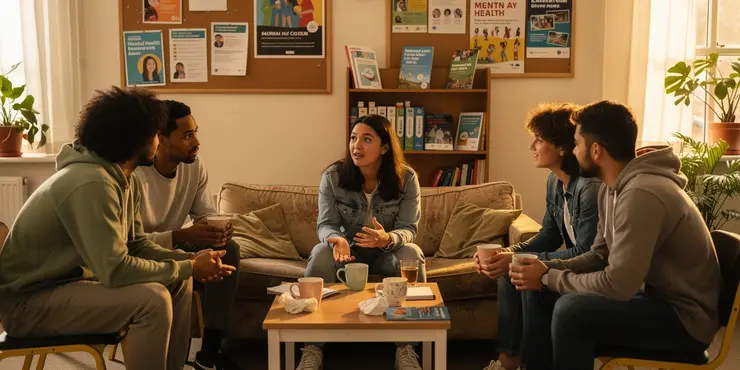
Tackling Youth Mental Health: Community Initiatives and Solutions
Relevance: 62%
-
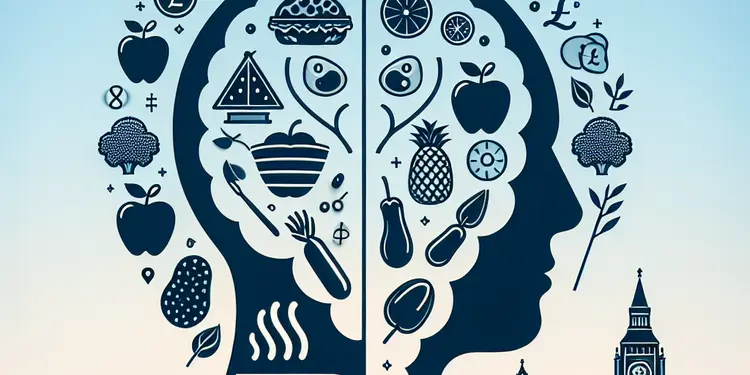
How do eating disorders affect mental health?
Relevance: 62%
-
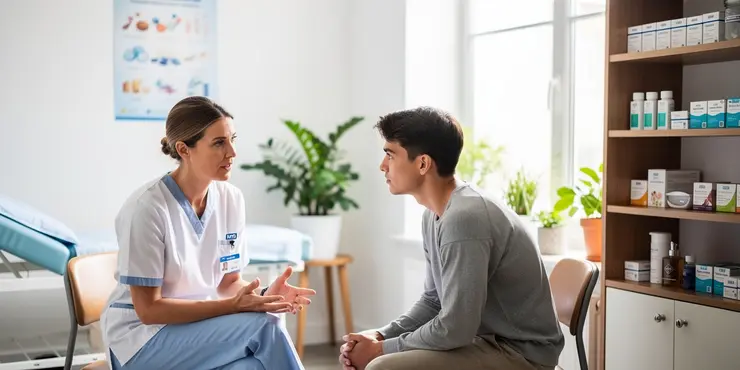
Can concussions lead to mental health issues?
Relevance: 60%
-

How does sugar impact mental health?
Relevance: 60%
-
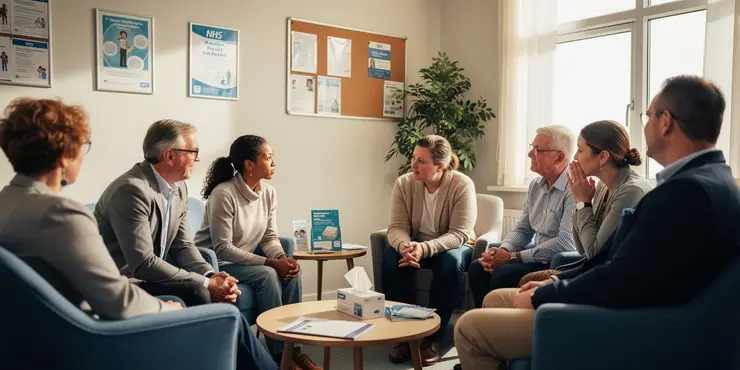
Support Services for Mental Health Amid Economic Uncertainty
Relevance: 60%
-
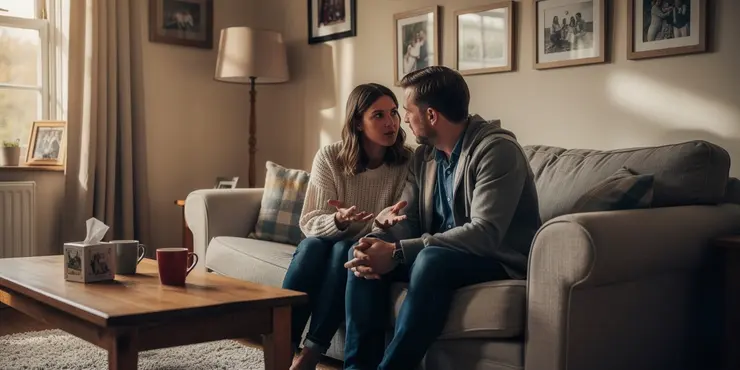
Can relationship problems be resolved to improve mental health?
Relevance: 60%
-
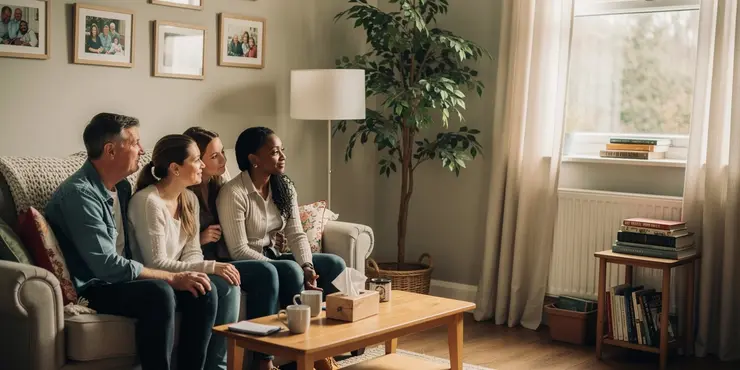
Mental Health Impact of Cost of Living Crisis and Support Resources
Relevance: 59%
-

Can mixed exercises improve mental health?
Relevance: 59%
-
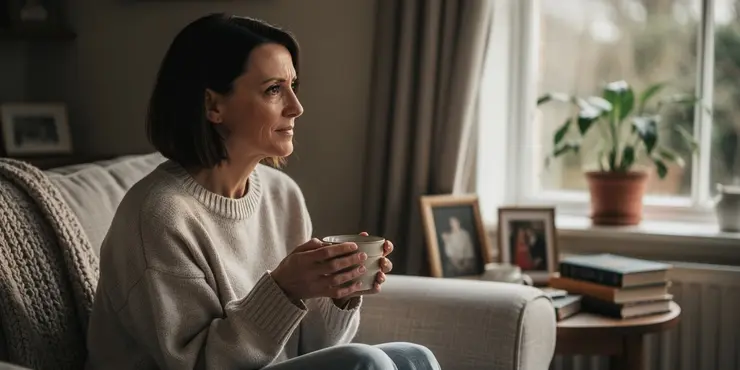
Can ending a toxic relationship improve my mental health?
Relevance: 59%
-
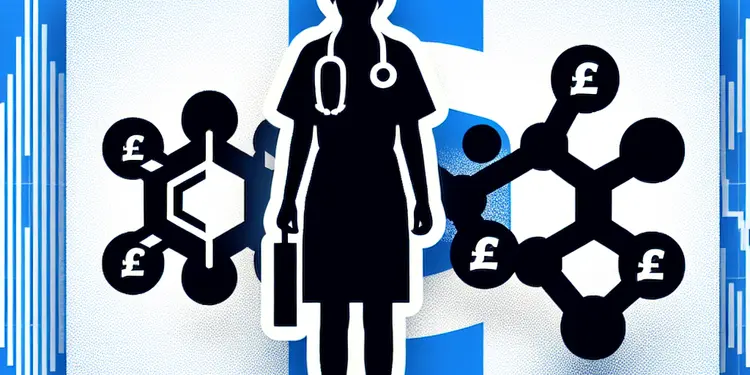
Can ketamine be prescribed for mental health conditions?
Relevance: 58%
-
Can eating disorders occur with other mental health conditions?
Relevance: 58%
-
How does binge drinking affect mental health?
Relevance: 58%
-

What is the role of mental health assessments in indefinite sentences?
Relevance: 58%
-
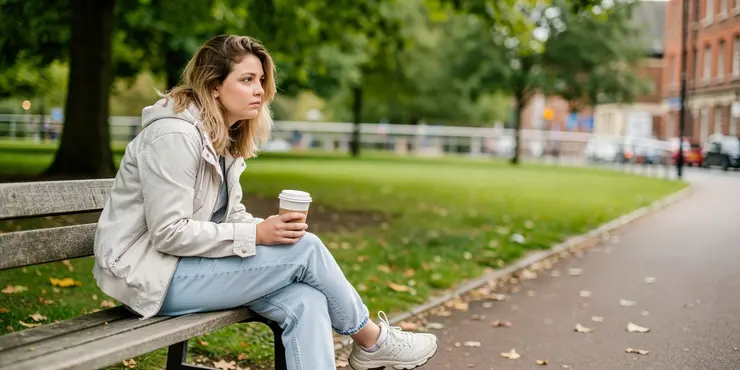
Short Films About Mental Health - Trauma PTSD
Relevance: 58%
-
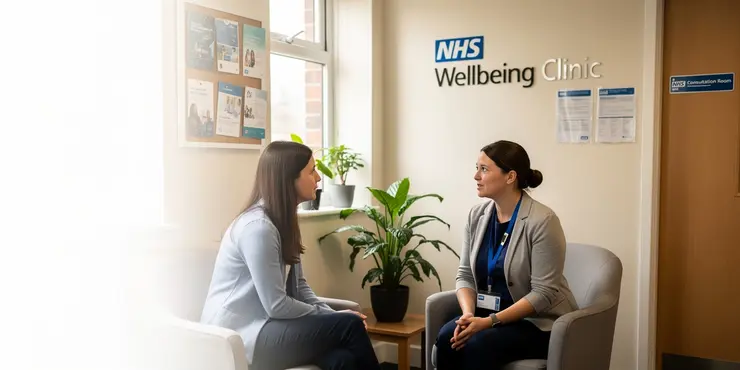
NHS Unveils Revolutionary Mental Health Support Initiative
Relevance: 58%
-

New Mental Health Strategy Launched to Address Youth Anxiety Epidemic
Relevance: 56%
-
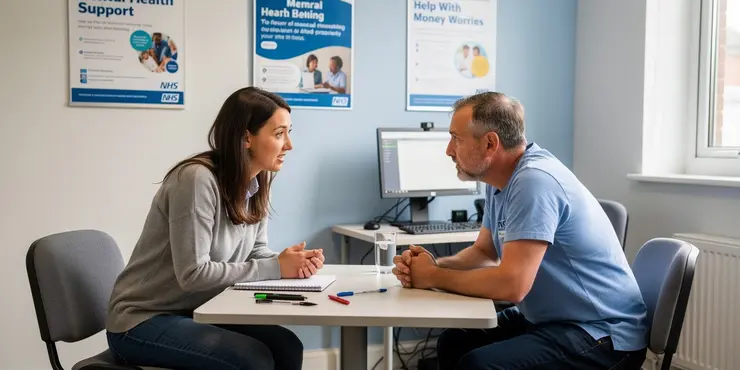
Essential Tips for Mental Health and Well-Being Amidst Rising Living Costs
Relevance: 56%
-

How does the loneliness epidemic impact mental health?
Relevance: 56%
-
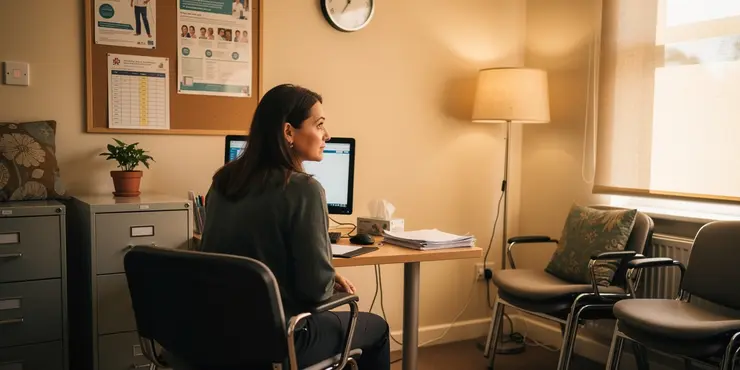
Mental Health Services Struggle to Cope Amid Record Demand
Relevance: 56%
-
Can cortisol levels impact mood and mental health?
Relevance: 55%
-

How does walking to work impact mental health?
Relevance: 55%
-

Can primary care support workers access mental health support?
Relevance: 54%
Mental Health Resources for Families
Introduction to Mental Health Resources
Mental health is a critical aspect of overall well-being, and it’s vital for families to access the right resources to support each other. In the United Kingdom, there are numerous resources available for families seeking assistance with mental health challenges. This guide provides an overview of these valuable resources, aiming to help families find the support they need.
NHS Mental Health Services
The National Health Service (NHS) offers a range of mental health services accessible to all UK residents. Families can begin their journey by consulting their GP, who can refer them to specialized mental health services. These services include counselling, therapy, and support for various mental health conditions. Additionally, the NHS website provides comprehensive information on mental health topics, self-help guides, and contact details for crisis support.
Charities and Non-Profit Organisations
Several charities and non-profit organisations in the UK are dedicated to providing mental health support for families. Organisations such as Mind, YoungMinds, and Rethink Mental Illness offer resources, helplines, and community support programs. These organisations also provide educational materials to help families understand mental health issues and find effective coping strategies.
Online Support Platforms
In the digital age, online support platforms have become a crucial resource for mental health. Websites like Kooth and Big White Wall offer online counselling, forums, and self-help tools that are accessible around the clock. These platforms provide a safe space for individuals to discuss their concerns anonymously and receive professional guidance. Families can benefit from the flexibility and accessibility of these online services.
Support Groups and Community Services
Local support groups and community services play a significant role in providing mental health resources. Support groups bring together families and individuals facing similar challenges, offering mutual support and shared experiences. Community centres often host mental health workshops and activities aimed at promoting well-being. These local resources are invaluable for fostering a sense of community and belonging.
Specialised Services for Children and Adolescents
Children and adolescents often require tailored mental health support. Child and Adolescent Mental Health Services (CAMHS) are specifically designed to address the mental health needs of young people. CAMHS provides assessments, therapy, and interventions for a range of conditions including anxiety, depression, and behavioural issues. Schools also play a pivotal role by offering counselling services and mental health education to students.
Conclusion
Accessing the right mental health resources is essential for families navigating mental health challenges. The United Kingdom offers a diverse array of services, from NHS provisions to charitable organisations and online platforms. By utilizing these resources, families can find the support they need to promote mental well-being and build resilience together.
Mental Health Resources for Families
Introduction to Mental Health Resources
Mental health is very important for feeling good and happy. Families need to have the right help to support each other. In the UK, there are many places and people who can help with mental health problems. This guide will show you where to find this help so your family can feel better.
NHS Mental Health Services
The National Health Service (NHS) in the UK helps with mental health. Everyone in the UK can use these services. You can start by talking to your family doctor, called a GP. The GP can send you to a mental health expert. These experts can help with talking therapies and other support. The NHS website also has lots of helpful information about mental health and what to do in a crisis.
Charities and Non-Profit Organisations
There are charities in the UK that help with mental health too. Charities like Mind, YoungMinds, and Rethink Mental Illness have phone helplines, websites, and programs to help families. They also teach families about mental health and how to cope better.
Online Support Platforms
There are websites that can help people with mental health. Websites like Kooth and Big White Wall have online counselling, chat rooms, and tools to help people feel better. They can be used any time and are private. Families can use these online services to get help when it is needed.
Support Groups and Community Services
Support groups and community services are important for mental health. Support groups let people talk to others who have the same problems. Community centres often have workshops and fun activities to help people feel better. These places help people feel like they belong.
Specialised Services for Children and Adolescents
Kids and teenagers sometimes need special help for their mental health. Child and Adolescent Mental Health Services (CAMHS) give this kind of help. They can figure out what is wrong and give therapy and other support. Schools also help with counselling and teaching about mental health.
Conclusion
Getting the right help for mental health is very important for families. The UK has many ways to get help, like the NHS, charities, and websites. By using these resources, families can feel better and stronger together.
Frequently Asked Questions
What types of mental health services are available for families in the UK?
In the UK, families can access a range of mental health services including NHS-provided services like CAMHS (Child and Adolescent Mental Health Services), adult mental health services, and crisis intervention services. There are also numerous charities and private therapy options available.
How can I access mental health services for my child?
You can access mental health services for your child through your GP, who can refer you to CAMHS. Additionally, schools often have access to counsellors or can recommend local services.
Are mental health services available for free in the UK?
Yes, many mental health services, especially those provided by the NHS, are available for free. However, there may be long waiting times. Some charities also provide free or low-cost support, while private services will have a fee.
What should I do if a family member is in a mental health crisis?
In a mental health crisis, you should contact emergency services by dialing 999 or visit the nearest A&E. You can also contact NHS 111 for urgent but non-emergency advice or reach out to crisis helplines such as Samaritans.
How can I find a mental health support group for my family?
Support groups can be found through charities like Mind and Rethink Mental Illness, local NHS trusts, or community centers. Many organizations also offer online support groups.
How can I support a family member with a mental health condition?
Educate yourself about their condition, practice active listening, encourage them to seek professional help, and offer to accompany them to appointments. Be patient and provide emotional support.
What resources are available for carers of individuals with mental health issues?
Various resources are available for carers, including Carers UK, Mind, and Rethink Mental Illness. These organizations provide information, support groups, and helplines specifically for carers.
Can I get mental health support at school for my child?
Yes, many schools have access to school counsellors and mental health support staff. They can also refer your child to external services such as CAMHS if needed.
Are there online resources available for mental health support in the UK?
Yes, there are numerous online resources such as NHS websites, Mind, YoungMinds, and Kooth, which provide information, self-help tools, and sometimes even online counselling.
How do I talk to my child about mental health?
It's important to approach the topic calmly and without judgment. Use age-appropriate language, listen actively, and reassure them that it's okay to talk about their feelings. Providing resources and professional help can also be beneficial.
What are common signs of mental health issues in children and teenagers?
Common signs include changes in mood or behavior, withdrawal from social activities, changes in eating or sleeping patterns, decline in school performance, and expressions of hopelessness or self-harm.
Are there specific mental health resources for young people?
Yes, resources like YoungMinds, The Mix, and Kooth specifically cater to young people, offering advice, counselling, and support both online and through helplines.
How can I reduce the stigma of mental health within my family?
Open conversations about mental health, educate your family on the importance of mental well-being, and promote a supportive environment. Share information from credible sources to dispel myths and misconceptions.
What should I expect from a first appointment with a mental health professional?
During the first appointment, the mental health professional will usually ask about the individual’s medical history, current symptoms, and any previous treatments. It’s an opportunity to discuss concerns and develop a treatment plan.
How can I find a qualified mental health professional in the UK?
You can find qualified professionals through your GP, NHS websites, professional organizations like the British Psychological Society (BPS) and UK Council for Psychotherapy (UKCP), or through recommendations from trusted sources.
What help is there for families in the UK who feel worried or stressed?
In the UK, families can get different kinds of help for mental health. The NHS has services like CAMHS. CAMHS helps children and teenagers. There are also services for grown-ups and help if there's an emergency. You can also find help from charities and private therapists.
How can I get mental health help for my child?
If you think your child needs help with their feelings, you can get support. Here’s how:
- Talk to their doctor: Make an appointment with your child’s doctor. They can give advice and tell you where to find help.
- Speak to a teacher: Talk to your child’s teacher. They may know of ways the school can help.
- Contact support groups: There are groups that help children and families. They can listen and give support.
- Check online resources: There are websites that can guide you on what to do next.
It’s important to get help if your child struggles with their feelings. You are not alone, and there are people who understand and can help.
You can get help for your child's feelings by talking to your family doctor. They can send you to a place called CAMHS for more help. Schools can also help you find someone to talk to, like a counselor or another helper nearby.
Can you get free help for mental health in the UK?
Yes, in the UK, there are places where you can get free help for mental health. This means you don’t have to pay money to talk to someone if you feel sad, worried, or need support.
If you want help, you can:
- Visit your doctor (GP) and ask for help.
- Go online and look for free mental health services like the NHS website.
- Talk to a teacher or a trusted adult who can help you find support.
It’s important to remember that getting help is okay, and there are people who care and want to help you feel better.
Yes, you can get mental health help for free from the NHS. But, you might have to wait a long time. Some charities give help for free or not much money. Private services will cost money.
What to Do if Someone in Your Family Has a Mental Health Emergency
Here are steps to help:
1. **Stay calm**: Take deep breaths and try to stay calm.
2. **Talk to them**: Ask them if they are okay and listen to what they say.
3. **Get help**: Call a doctor or mental health professional. You can also call emergency services if they are in danger.
4. **Be there**: Stay with your family member until help arrives.
5. **Support tools**: Use calming techniques like deep breathing or playing soothing music.
If you feel very upset or scared, you should call 999 or go to the closest hospital that takes emergencies. You can also call NHS 111 if you need help right away but it's not an emergency. You can talk to someone at Samaritans too. They are there to listen and help.
How can I find a mental health support group for my family?
You want to find a group to help your family with mental health. Here’s how:
- Ask your doctor for advice. They can tell you where to find a group.
- Use the internet to search for support groups near you.
- Look for phone numbers or websites of local mental health centers.
- Ask friends or family if they know any good support groups.
It can help to write things down. Use a list to keep track of groups you find.
If reading is hard, you can ask someone to help read with you.
You can find support groups through charities like Mind and Rethink Mental Illness. You can also check with local NHS trusts or visit community centers. Many groups also meet online.
How can I help a family member who has a mental health problem?
Learn about their condition, listen carefully, and help them find a doctor. Offer to go with them to the doctor. Be patient and be there for them.
What help can carers get for people with mental health problems?
If you look after someone with mental health issues, there are places to get help:
- Join a support group for carers.
- Talk to a doctor or nurse for advice.
- Find information on the internet.
These are good places to start. You can learn tips and get support from others.
There are groups that can help people who take care of others. Some of these are Carers UK, Mind, and Rethink Mental Illness. They give information, have support groups, and phone lines to help carers.
Can my child get help for feelings at school?
Yes, schools can help your child if they feel upset or worried. You can talk to the teacher or school counselor. They can give support and help your child feel better.
Here are some things you can do:
- Ask the teacher how they can help your child.
- Find out if the school has a counselor who can talk to your child.
- Use books or videos to help your child understand their feelings.
It's okay to ask for help. School is a place where children can get the support they need.
Yes, many schools have people who can help with feelings and problems. They are called school counsellors. If your child needs more help, they can send them to other helpers like CAMHS.
Can people in the UK find help for mental health on the internet?
Yes, people in the UK can find help for mental health on the internet. Here are some places to look:
- Visit websites like Mind or Samaritans for support.
- You can call or chat with helpers if you're feeling worried or sad.
- Look for apps on your phone that can help you relax, like Calm or Headspace.
If reading is hard, you can:
- Ask someone to help you with the computer or phone.
- Use voice-to-text tools to write or read things out loud.
Yes, there are many websites that can help. You can look at NHS websites, Mind, YoungMinds, and Kooth. They have information, self-help tools, and sometimes online chatting with a counsellor.
How can I talk to my child about feelings and health?
Talking to your child about feelings is important. Here are some tips:
- Use simple words they understand.
- Be calm and listen to them.
- Ask them how they feel.
- Let them know it’s okay to have feelings.
- Give examples of when you felt the same.
- Use stories or books to explain feelings.
- Help them find ways to feel better.
Tools that might help:
- Feeling faces charts to show emotions.
- Books about feelings and health.
- Drawing or playing to express feelings.
It's important to talk about this in a calm way. Don't be judgmental. Use simple words that are right for their age. Listen carefully and let them know it's okay to share their feelings. It's also good to give them help, like books or talking to kind and trained people.
What are signs of mental health problems in kids and teens?
Here are some signs that a child or teen might have a mental health problem:
- They feel sad or upset a lot and it doesn't get better.
- They stop doing things they usually enjoy.
- They have problems at school, like not doing their work or getting bad grades.
- They have trouble sleeping or sleep too much.
- They eat a lot more or a lot less than usual.
- They are very worried or afraid of things.
- They get angry very easily or have big mood swings.
- They hurt themselves on purpose or talk about hurting themselves.
- They stay away from family and friends.
If you notice these signs, it can help to talk to someone who can help, like a doctor or counselor. It's important to listen and be kind.
Some tools that might help include:
- Talking to a trusted adult.
- Keeping a diary about how they feel.
- Using apps that help with calming and relaxation.
Signs to watch for:
- Mood changes: Feeling sad or angry a lot.
- Behavior changes: Acting different than usual.
- Not wanting to hang out with friends.
- Eating or sleeping differently.
- Doing worse in school.
- Saying things that show they feel really bad or want to hurt themselves.
If you notice these signs, you can use tools like talk therapy or relaxation exercises to help. Tell an adult if you are worried.
Can young people get help for their feelings?
Yes, young people can get help if they feel sad or upset. Here are some ways:
- Talk to a trusted adult: You can talk to a parent, teacher, or someone you trust.
- Call a help line: You can call a special number to talk to someone who can help.
- Visit a website: There are websites with information and support for young people.
- Write down feelings: Writing in a diary can help express how you feel.
It is okay to ask for help when you need it.
Yes, there are places that can help young people. YoungMinds, The Mix, and Kooth are three good ones. They give advice, talk to you, and offer support. You can find them online and call them for help.
How can I help my family understand mental health better?
Talk about feelings and how to stay healthy in your mind. Teach your family why taking care of how we feel is important. Make your home a kind place. Share information from trusted sources to help everyone understand better and to correct any wrong ideas they might have.
What will happen at my first visit to a mental health helper?
When you go to see someone who helps with feelings, it is okay to feel a bit nervous. They are there to help you. Here is what might happen:
- Meet and Greet: The helper will say hello and introduce themselves. You can tell them your name too.
- Talking Time: You will have a chat about how you have been feeling and what you want help with. It’s okay to share what you feel comfortable with.
- Ask Questions: You can ask any questions if you don’t understand something. It’s good to ask for help if you need it.
- Plan Together: The helper will talk about how you can work together to help you feel better.
- Safe and Private: Remember, what you talk about is private. It stays just between you and your helper.
If you feel anxious, it can help to bring a friend or family member with you. Sometimes, drawing or writing things down can help you share your feelings too. Everyone is there to help you, so you can always say if you are unsure or want to try something different.
At the first meeting, the mental health helper will ask about the person's past health problems, how they are feeling now, and any help they got before. It's a time to talk about worries and plan how to feel better.
How can I find a good mental health helper in the UK?
Finding the right person to talk to about feelings can help a lot. Here are some simple steps to find a good mental health helper in the UK:
- Ask your doctor: You can start by asking your doctor for help. They can tell you where to find someone to talk to.
- Use the internet: You can search online for mental health helpers. Look for websites like the NHS, Mind, or Samaritans.
- Talk to trusted people: Ask family or friends if they know a good helper.
- Check their qualifications: Make sure the helper is trained. You can ask them or look on their website.
- See how you feel: It is important to feel comfortable with the person you talk to. If you do not, you can try talking to someone else.
Remember, it is okay to ask for help. Talking to someone can make you feel better. You can also use tools like pictures, charts, or apps to help express your feelings.
You can find good helpers by talking to your doctor or using NHS websites. You can also look at groups like the British Psychological Society (BPS) and UK Council for Psychotherapy (UKCP). Asking people you trust for ideas can help too.
Useful Links
This website offers general information and is not a substitute for professional advice.
Always seek guidance from qualified professionals.
If you have any medical concerns or need urgent help, contact a healthcare professional or emergency services immediately.
Some of this content was generated with AI assistance. We’ve done our best to keep it accurate, helpful, and human-friendly.
- Ergsy carfully checks the information in the videos we provide here.
- Videos shown by Youtube after a video has completed, have NOT been reviewed by ERGSY.
- To view, click the arrow in centre of video.
- Most of the videos you find here will have subtitles and/or closed captions available.
- You may need to turn these on, and choose your preferred language.
- Go to the video you'd like to watch.
- If closed captions (CC) are available, settings will be visible on the bottom right of the video player.
- To turn on Captions, click settings .
- To turn off Captions, click settings again.
More Items From Ergsy search
-

Mental Health Resources for Families
Relevance: 100%
-

Advancements in Mental Health Resources for Families
Relevance: 96%
-

Mental Health Support Resources for Families
Relevance: 96%
-

Mental Health Support for Families: Resources and Strategies
Relevance: 91%
-

Mental Health Support for Families: Resources and Helplines
Relevance: 91%
-
Mental Health Support for Families: Resources and Guidance
Relevance: 90%
-

Mental Health Support for Families - Latest Resources and Guidance
Relevance: 86%
-

Mental Health: Laura's Story | NHS
Relevance: 69%
-

Mental Health Support Resources in the UK
Relevance: 69%
-

Mental Health Support Services in the UK
Relevance: 69%
-

Understanding Mental Health in Children
Relevance: 69%
-

Impact of Rising Living Costs on Family Health
Relevance: 67%
-

Accessing Mental Health Support Resources in the UK
Relevance: 66%
-

Current Challenges in Youth Mental Health Services
Relevance: 65%
-

What mental health resources are available for seniors?
Relevance: 64%
-

Navigating Mental Health Services for Children and Adolescents
Relevance: 63%
-

What is the impact of obesity on mental health?
Relevance: 63%
-

Can gut health affect mental health as one ages?
Relevance: 62%
-

Tackling Youth Mental Health: Community Initiatives and Solutions
Relevance: 62%
-

How do eating disorders affect mental health?
Relevance: 62%
-

Can concussions lead to mental health issues?
Relevance: 60%
-

How does sugar impact mental health?
Relevance: 60%
-

Support Services for Mental Health Amid Economic Uncertainty
Relevance: 60%
-

Can relationship problems be resolved to improve mental health?
Relevance: 60%
-

Mental Health Impact of Cost of Living Crisis and Support Resources
Relevance: 59%
-

Can mixed exercises improve mental health?
Relevance: 59%
-

Can ending a toxic relationship improve my mental health?
Relevance: 59%
-

Can ketamine be prescribed for mental health conditions?
Relevance: 58%
-
Can eating disorders occur with other mental health conditions?
Relevance: 58%
-
How does binge drinking affect mental health?
Relevance: 58%
-

What is the role of mental health assessments in indefinite sentences?
Relevance: 58%
-

Short Films About Mental Health - Trauma PTSD
Relevance: 58%
-

NHS Unveils Revolutionary Mental Health Support Initiative
Relevance: 58%
-

New Mental Health Strategy Launched to Address Youth Anxiety Epidemic
Relevance: 56%
-

Essential Tips for Mental Health and Well-Being Amidst Rising Living Costs
Relevance: 56%
-

How does the loneliness epidemic impact mental health?
Relevance: 56%
-

Mental Health Services Struggle to Cope Amid Record Demand
Relevance: 56%
-
Can cortisol levels impact mood and mental health?
Relevance: 55%
-

How does walking to work impact mental health?
Relevance: 55%
-

Can primary care support workers access mental health support?
Relevance: 54%


